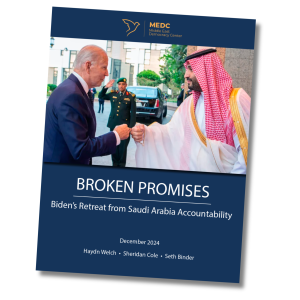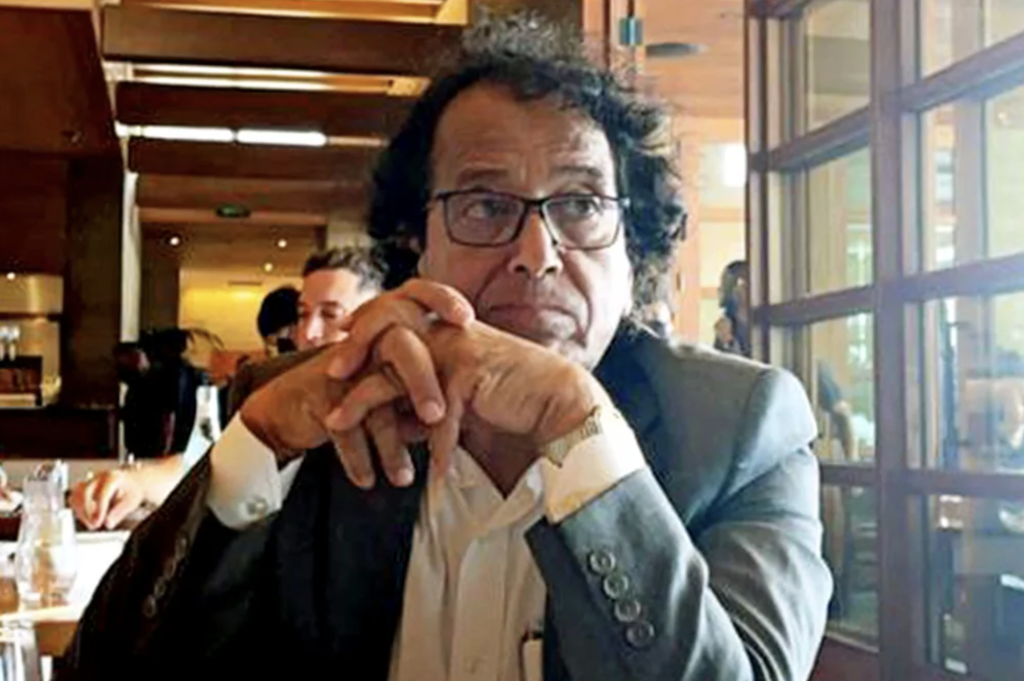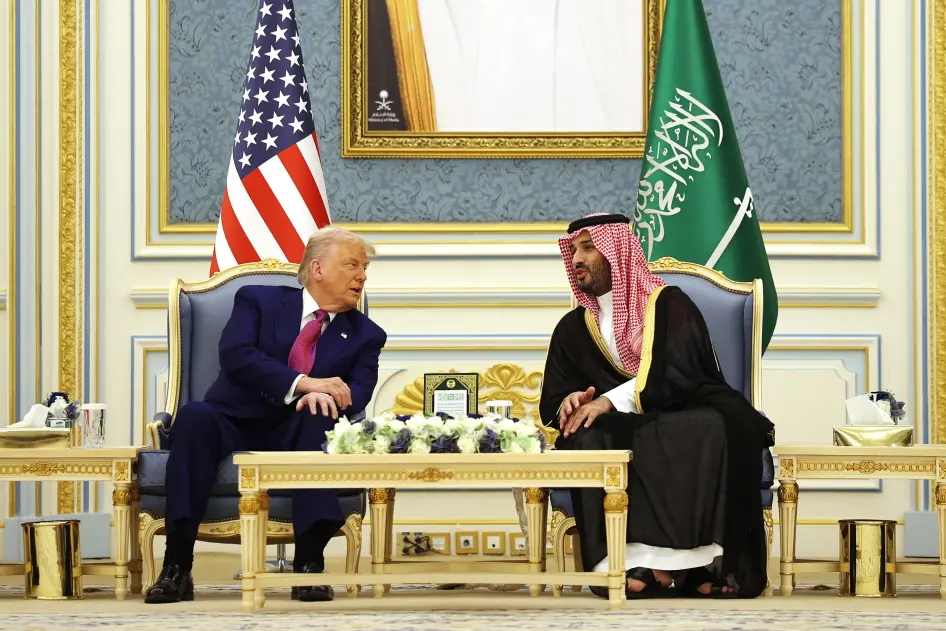Read the Policy Brief as a PDF here.
 On the campaign trail, then-presidential candidate Joe Biden drew a clear distinction between himself and President Donald Trump on U.S. foreign policy toward Saudi Arabia. During a November 2019 primary debate, Biden said that if he were elected president, he would make Saudi Arabia under the leadership of Crown Prince Mohammed bin Salman (MBS) “the pariah that they are.” His campaign pledged to “reassess the [U.S.-Saudi] relationship,” defend the rights of Saudis “to speak their minds freely without fear of persecution and violence,” and to end the Trump administration’s “blank check [for Saudi Arabia] to pursue a disastrous set of policies.”
On the campaign trail, then-presidential candidate Joe Biden drew a clear distinction between himself and President Donald Trump on U.S. foreign policy toward Saudi Arabia. During a November 2019 primary debate, Biden said that if he were elected president, he would make Saudi Arabia under the leadership of Crown Prince Mohammed bin Salman (MBS) “the pariah that they are.” His campaign pledged to “reassess the [U.S.-Saudi] relationship,” defend the rights of Saudis “to speak their minds freely without fear of persecution and violence,” and to end the Trump administration’s “blank check [for Saudi Arabia] to pursue a disastrous set of policies.”
More than four years later, however, President Biden is leaving the White House with a Saudi policy that starkly contradicts his campaign promises, returning to an approach established under the Trump administration.
In a new MEDC policy brief, “Broken Promises: Biden’s Retreat from Saudi Arabia Accountability,” Haydn Welch, Sheridan Cole, and Seth Binder examine the evolution of U.S.-Saudi relations during Biden’s term, analyzing key inflection points and strategic considerations that shaped policy.
Section one of this paper tracks the relationship’s trajectory, highlighting critical moments such as the release of the U.S. intelligence report on the murder of Saudi journalist Jamal Khashoggi and Biden’s July 2022 trip to Jeddah to meet with MBS. Section two takes a deeper look at the relationship through the lens of five strategic interests: 1) great power competition, 2) regional integration and countering Iran, 3) security cooperation, 4) economic cooperation, and 5) human rights.
“The Biden administration, despite rhetorical commitments to holding MBS accountable, repeatedly chose policies fundamentally mirroring its predecessor’s approach,” the authors write. “Ultimately, the Biden administration abandoned its opportunity to reshape the U.S.-Saudi relationship to better advance U.S. interests, while fully rehabilitating the reputation of the crown prince.”
Read the policy brief here.
This policy brief is the first of two on the U.S.-Saudi relationship. A forthcoming companion paper will examine the prospects for future U.S.-Saudi relations and recommend potential policy changes to better align U.S. interests and democratic values.
The paper was written with support from the Heinrich Boell Foundation, Washington D.C. The findings and conclusions expressed are solely those of the author(s) and do not represent the views of the Heinrich Boell Foundation.





